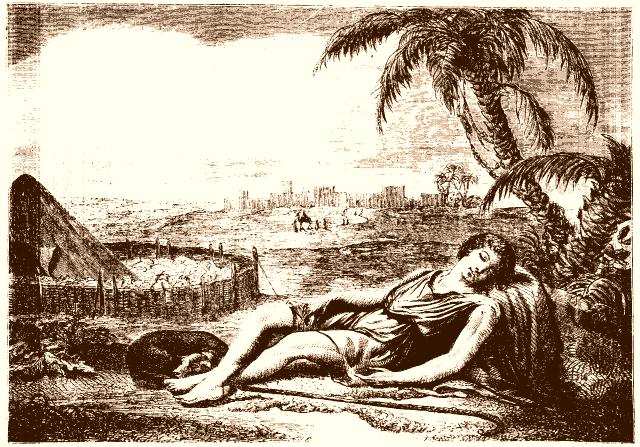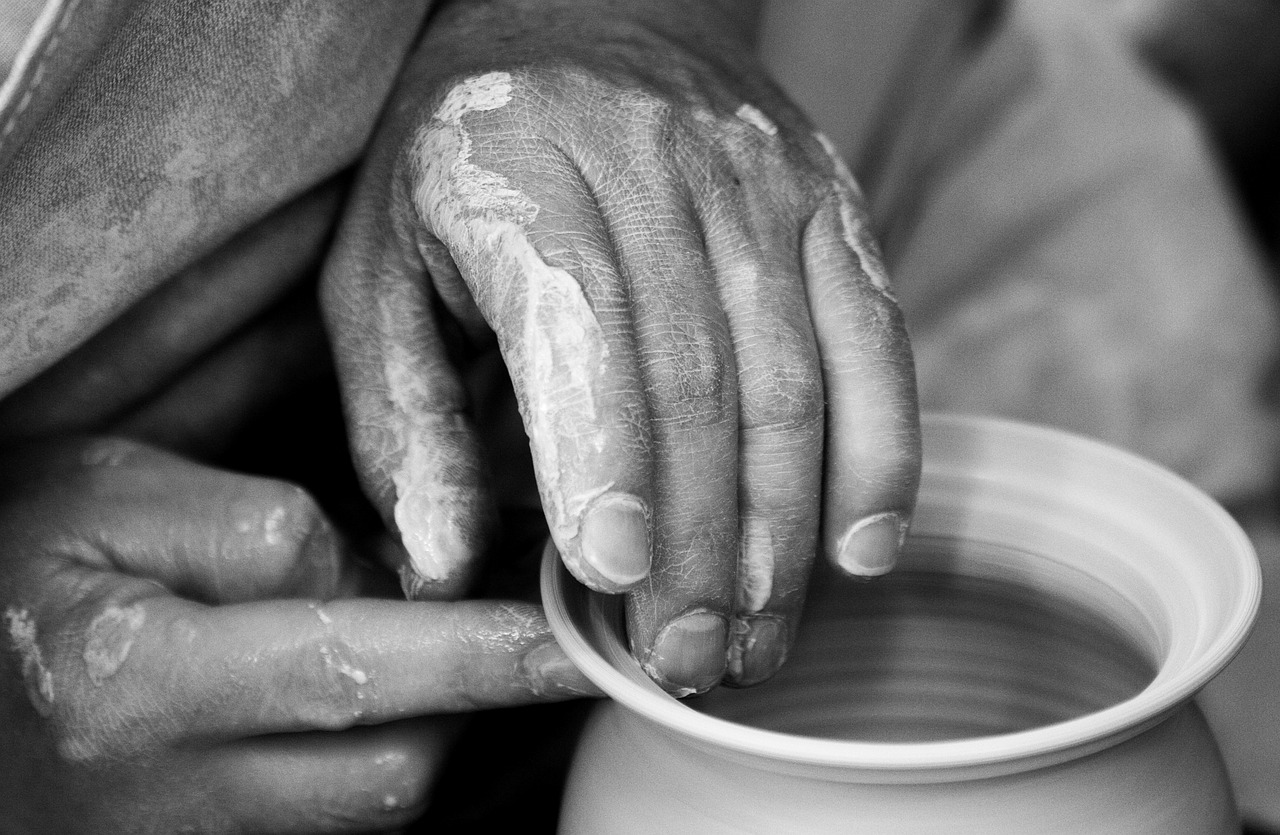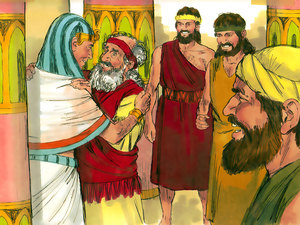WHAT WOULD YOU DO? WHAT IT MIGHT TAKE TO SAVE YOUR LOVED ONES.
Joseph was often misunderstood, mocked, and hated for his sharing what God had shown to him. He suffered persecution at the hands of his brothers, his “employer,” and others with whom he came in contact. Yet he unknowingly had been chosen of God to save loved ones.
As a young boy, Joseph won the favor of his father who showed his tenderness toward his son by having made for him a “coat of many colors.” Because of this, his brothers “… hated him, and could not speak peaceably unto him.” (Genesis 37:4) Yet there is no recorded rebuttal from Joseph to his wicked, jealous brothers.


Jealousy often drives people to extreme wicked behavior.
In Biblical times, God often spoke His Word through dreams. Through these, He told Joseph that he would one day rule over his family. When Joseph shared God’s message with them, they rejected it and “… hated him yet the more for his dreams, and for his words.” (Genesis 37:8)
Instead of rejoicing at God’s touch upon Joseph’s life, his brothers’ anger drove them to plot to kill him. They threw him into a pit with no food or water hoping this would be Joseph’s doom.
However, their greedy hearts led them to change their minds and sell Joseph into slavery to some passing Ishmaelites. Still, we hear of no anger or retaliation from Joseph.

Joseph’s brothers wanted to murder Joseph by throwing him in a pit.
The Ishmaelites brought Joseph down to Egypt where Potiphar, the captain of Pharaoh’s guard, bought him. Even in the midst of slavery, however, we find that Joseph had favor with God. Potiphar “made him overseer over his house, and all that he had he put into his hand.” (Genesis 39:4)
We must not miss Joseph’s steadfastness in all of this. When he was in the pit and while he was in slavery, he must have been communicating with God because we are told “And the LORD was with Joseph …” (Genesis 39:2) He didn’t curse God or give up trying to be the best wherever “he was planted.” Likewise, when you are in the pit, in the midst of heart-breaking circumstances, if your heart is right with God, He is “with you.” God teaches us that our attitudes should not be driven by our circumstances.
How do you react when you are depressed or in the pits?
“… because thou art his wife: how then can I do this great wickedness, and sin against God?” (Genesis 39:7,9)
Things seemed to be going well for awhile for Joseph–until one day Potiphar’s wife tried to seduce him to have sexual relations with her. Joseph was in a difficult spot.
He loved the Lord and knew that all sexual sin outside the bonds of a one-flesh marriage would be a sin against God; yet, if he denied Potiphar’s wife, she would be angry. His flesh might have responded to her enticements had he not had a close relationship with the Lord. Because of this, Joseph had developed the inner strength to reject her lustful command, “… Lie with me,” as should all men and women when confronted with sexual temptations. Joseph responded: “… because thou art his wife: how then can I do this great wickedness, and sin against God?” (Genesis 39:7,9)
As Joseph turned to flee, this wicked woman tore a piece of his clothing and later used that to accuse him of making sexual advances. Because of this false accusation, Joseph was put in prison for several years. But even there, he was faithful and served others. “But the LORD was with Joseph, and shewed him mercy, and gave him favour in the sight of the keeper of the prison. And the keeper of the prison committed to Joseph’s hand all the prisoners that were in the prison; and whatsoever they did there, he was the doer of it.” (Genesis 39:21,22)
No matter what the circumstances, Joseph ministered where he was.
Most of us, having these circumstances forced upon us, would be quite depressed; likely very angry; however, not this man of God. Joseph, instead, ministered right where he was. He used those skills of understanding God’s Word through interpreting dreams he had learned as a young man to help two fellow prisoners, the king’s baker and butler, who had been sentenced to prison because they had offended Pharaoh.
They had dreams that Joseph interpreted which resulted in their being freed from prison. Joseph asked the butler to remember him telling the butler he would soon be released (as revealed in the dreams) and reminded him that he (Joseph) had done nothing to warrant being sold into slavery nor to be thrown into the dungeon. However, the butler broke his promise. He did not speak to Pharaoh about Joseph, so Joseph spent two more years in prison–until a dream troubled Egypt’s ruler. It was at this time that the chief butler remembered Joseph’s ability to interpret dreams and suggested that he be called to relieve the troubled Pharaoh. Joseph was called to explain Pharaoh’s dream.
Everywhere Joseph went, people lied about him and to him;
- His brothers,
- Potiphar’s wife,
- Those in prison whom he had helped.
Yet, Joseph did not retaliate. He let God work good out of all things in his life. (Romans 8:28)
UNLIKE MOST OF US, JOSEPH DID NOT TAKE CREDIT FOR THE GOOD THAT GOD BROUGHT INTO HIS LIFE.

BUT Joseph was quick to acknowledge God’s touch upon his life and that ALL good in our lives comes from God. We are but vessels that God CAN use IF we are willing to be molded through our circumstances. “And Joseph answered Pharaoh, saying, It is not in me: God shall give Pharaoh an answer of peace.” (Genesis 41:16)
Finally, the breakthrough came for Joseph. Pharaoh was pleased with the interpretation. After thirteen years of servitude, Joseph was exalted in this foreign land: “And Pharaoh took off his ring from his hand, and put it upon Joseph’s hand, and arrayed him in vestures of fine linen, and put a gold chain about his neck; And he made him to ride in the second chariot which he had; and they cried before him, Bow the knee: and he made him ruler over all the land of Egypt. And Pharaoh said unto Joseph, I am Pharaoh, and without thee shall no man lift up his hand or foot in all the land of Egypt.” (Genesis 41:42-44)
Not only this, but Joseph was given a wife who bore him two sons whose names expressed this man’s reward for OVERCOMING God’s way:
Joseph’s son Manasseh: “… For God, said he, hath made me forget all my toil, and all my father’s house.”
Joseph’s son Ephraim: “… For God hath caused me to be fruitful in the land of my affliction.”
(Genesis 41:51,52)
Joseph, like each of us, didn’t know how and why God was training him through adverse circumstances to be equipped to bless others.
WE NEVER KNOW HOW GOD MAY USE OUR TALENTS
Joseph had been in training for reigning in the king’s palace, but he most likely didn’t know this when he was rejected by his family, when he was sentenced to prison because of an ungodly woman, when he was forgotten for two more years by the butler whom he had served well.
The story could have ended well here, but as with so many of us, we miss the purpose for which we might be suffering afflictions. Shortly after Joseph gained favor with Pharaoh, a great famine hit the land of Egypt. Because of Joseph’s recommendation that a sound program of savings be instituted, the kingdom prepared to survive an upcoming famine by storing grain.
However, those in the area in which Joseph’s family was living had not done such. Like so many of us, we do not look ahead to save for those years that might be lean ones. Similarly, we don’t invest our time and resources to further the Kingdom of God in our lives. Many invest in expensive cars and vacation resorts; eat at luxurious restaurants and purchase designer clothing. We don’t learn to trust in the Lord when we are young because we are strong and self-sufficient. Serious financial burdens, brokenness, and health problems–challenges that money “often cannot solve, haven’t come upon us. Thus, when we are faced with these, we don’t know how to turn to the LORD to: trust in the LORD with all thine heart; and to lean not unto thine own understanding …” (Proverbs 3:5-6)

THE MOUNTAIN WE BEG GOD TO REMOVE MAY BE WHAT WILL DRIVE US TO OUR KNEES AND GET US TO TURN TOWARD GOD.
Joseph’s family was forced to come to the palace to buy food — the only place that had resources to sustain life — just as Christ is the living water for us and the only place we can obtain everlasting life — spiritual. What will it take to drive us to the LORD? It may be those very circumstances that have driven us to our knees — the mountain that we beg God to remove. It may be to save loved ones as we witness through our adverse circumstances.
Joseph never harbored unforgiveness for the wicked way his family treated him.
Joseph could now see the fulfilling of the prophecy (Word) he shared with his family as a young boy, but they had rejected – that he would one day rule over them as one in authority. This humble servant of the Lord could have rejected his family who had so mistreated him and caused him to live as a servant and a prisoner for thirteen years. Instead, recorded is Joseph’s tender heart: “And he turned himself about from them, and wept; and returned to them again …” (Genesis 42:24)
We read in the last chapter of Genesis the conclusion of the matter: “And his brethren also went and fell down before his face; and they said, Behold, we be thy servants.” (Genesis 50:18) Humble Joseph responded: “… Fear not: for am I in the place of God? But as for you, ye thought evil against me; but God meant it unto good, to bring to pass, as it is this day, to save much people alive. Now therefore fear ye not: I will nourish you, and your little ones. And he comforted them, and spake kindly unto them.” (Genesis 50:19-21)
If we’re willing, God has a “ways and means committee” that no man can stop:
“If ye be willing AND obedient, ye shall eat the good of the land.” Isaiah 1:19
Do we comfort and speak kindly to them who treat us with disdain, those who take advantage of us financially, those who lie and cheat to unfairly take assets from us?
For an audio recording of this message click on the player below:


